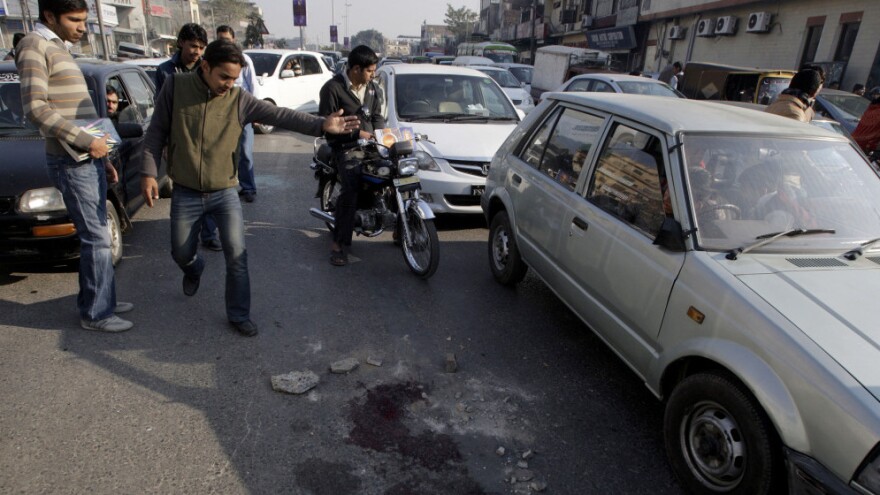An employee of the U.S. consulate in Lahore, Pakistan, shot and killed two men there earlier today, NPR's Julie McCarthy and other journalists report.
According to Julie:
"The senior superintendent of police in Lahore said that two people are confirmed dead, both of whom were reported to be riding motorcycles when the American consulate employee opened fire on them. Eyewitnesses quoted in the local media say the men had been chasing the American's car when the shooting began. Police say they have recovered weapons from the dead men."
A third person died after being struck by a vehicle that arrived on the scene to evacuate the American, Julie adds.
Here's the audio of the report she filed for NPR's newscast:
"The American had stopped at a traffic light when two men riding a motorcycle stopped near his car, police say.
" 'The man told us he pulled out his pistol in self-defence,' Lahore police chief Aslam Tarin told AFP news agency."
And the Associated Press notes that:
"In the northwestern city of Peshawar in 2008, gunmen shot and killed an American aid worker as he drove to work. Suspected militants also opened fire on the vehicle of the United States' top diplomat in the city the same year, but she survived the attack. Street robberies are not uncommon, and foreigners would be perceived as lucrative targets in the poor country."
Copyright 2020 NPR. To see more, visit https://www.npr.org. 9(MDAxNDQ2NDAxMDEyNzU2NzM2ODA3ZGI1ZA001))




